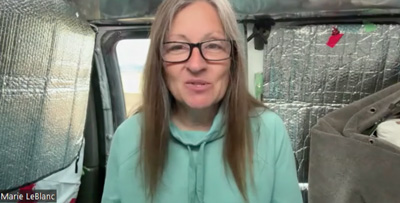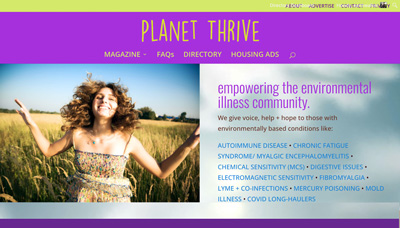
The Chemical Sensitivity Podcast just aired an episode where they talk to Dr. Lawrence Afrin, an established physician and expert on Mast Cell Activation Syndrome (MCAS). The podcast explores the link between MCAS and MCS (Multiple Chemical Sensitivity). Dr. Afrin discusses whether MCAS could be at the root of MCS, what the primary symptoms of Mast Cell Activation Syndrome are, and what to do if you cannot access a physician. He also covers medication that people with MCAS might try, and what to be aware of with fillers and excipients.
What I found most interesting was the basic information he shared about mast cells. They are primarily found in the “environmental interfaces” of our body — our skin, our ocular system, our respiratory tract, gastrointestinal tract, and genitourinary tract. They are also in the walls of all the vessels and neurons throughout our body. Normally, the mast cells don’t do anything, except sit in our cells and “sense.” As soon as we receive some sort of environmental insult — like an infection, trauma, chemical exposure — the mast cells explosively release the chemical signals known as their mediators. The mast cells react quicker than any other part of our immune system. The mediators that are released bind with receptors on the specific cells related to the environmental insult. Those cells then adapt their behavior to the mediators. Under normal circumstances, this is a normal process that the body easily recovers from. But in our modern age, the onslaught of all sorts of new chemicals has completely confused the mast cells’ evolutionary wisdom, causing them to malfunction in various ways.
Dr. Afrin spoke a bit about how mast cells can affect the eyes. He has seen a lot of that in his patients over the years and said it is a common complaint. He stressed that the most important thing would be to identify the environmental trigger and remove it from your environment. Failing that, you can try the various medications available for managing mast cell reactions. He has seen a lot of improvement that way.
The Chemical Sensitivity Podcast is produced by fellow canary Aaron Goodman, Ph.D., longtime journalist and communication studies researcher, with assistance from producer Kiana Holland. He airs new episodes twice a month — you can subscribe on Apple Podcasts, Spotify, Google Podcasts, YouTube, or wherever you get your podcasts. All of his previous episode topics look interesting and I encourage everyone to check his podcast out and show your support.










0 Comments